Iran-Linked Hackers Deploy New Ransomware Against Israeli Organizations

A group linked to Iran is using new ransomware against a Middle Eastern adversary, researchers said.

A group linked to Iran is using new ransomware against a Middle Eastern adversary, researchers said.
The group calling itself Moneybird allegedly deployed the ransomware against Israeli organizations, CheckPoint's Incident Response Team investigated.
Researchers found that it resembled Agrius, a hacker group that has been around since 2020 and disguised itself with aliases like BlackShadow.
In late 2020, the group released ransomware on Shirbit, an Israeli insurance company. It also released wiper attacks on Bar-Ilan University in 2021.
Researchers at CheckPoint report that Moneybird is a new product for the group. Previous attacks were mostly carried out using ransomware known as Apostle.
Though the researchers didn't specify what types of organizations were targeted, they emphasized that the techniques used were Agrius-approved.
Threat actors gained entry via public-facing web servers and “unique variants of ASPXSPY” -- a malicious script hidden inside a “Certificate” text file.
It then moved laterally within networks, conducting reconnaissance and exfiltrating data. CheckPoint reports that the group uses "targeted paths," which allow the ransomware to disregard most files within targeted networks.
“Moneybird, like many other ransomwares, is a grim reminder of the importance of good network hygiene, as significant parts of the activity could have been prevented early on,” the researchers said.
According to Microsoft Threat Intelligence, the Iranian government is increasingly combining influence operations with cyberattacks.
Last year, they identified 24 "cyber-enabled operations" linked to the Iranian government, compared to seven the year before, and found a decline in the types of ransomware and wiper attacks Agrius usually employs.
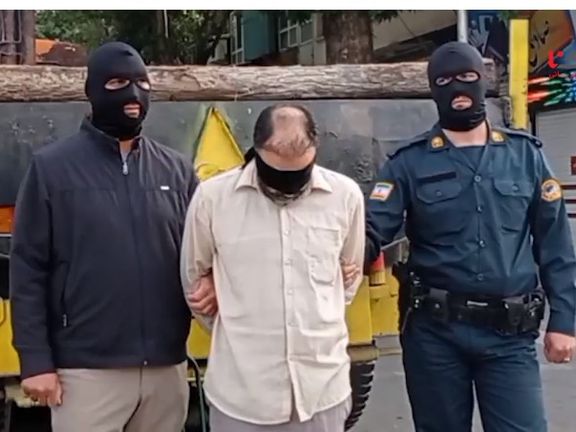
Despite mounting criticism from global leaders and rights activists, Iran executed seven more people on drugs and murder charges Thursday.
Human rights sources reported that Mohammad Daraie, Mehdi Salari, Majid Jafari, Ali Tayyeb, Ali Piri, Qaderbakhsh Dehani, and Abdol-Rasool Jamshidi were executed in Jiroft, Isfahan, Kerman, and Urmia prisons in the early hours of Thursday.
The number of executions has exceeded 110 in the last month.
Meanwhile, the Center for Human Rights in Iran (CHRI) called on world leaders to increase pressure on the Iranian regime to end the flagrantly unlawful executions of protesters and others that are on the rise.
“The Islamic Republic is hanging young protesters—after torturing them into making 'confessions' and convicting them in sham trials—and targeting minorities for executions for lesser crimes, in order to cow its restive population into silence,” said the group in a letter delivered to 75 governments around the world on Wednesday.
“Unless world leaders join forces to raise the cost to the authorities in Iran of these state-sanctioned killings, which severely violate international laws governing the death penalty, the Islamic Republic’s killing machine will gather steam and more people will unjustly die on the gallows in Iran,” said Hadi Ghaemi, CHRI Executive Director.
Over 500 protesters, including 71 children, have been killed by state security forces since the death in custody of Mahsa Amini in September. Untold others have been maimed and blinded, 22,000 people have been arrested, and raped, and many have been tortured. A UN expert on Iran has described these atrocities as crimes against humanity.
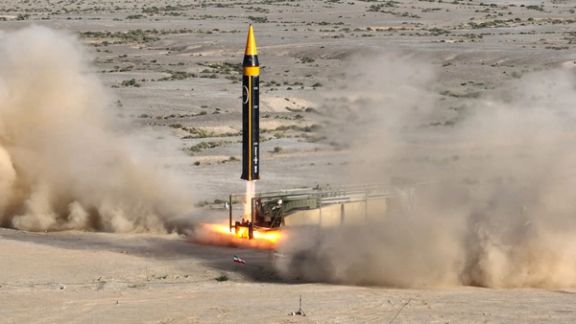
Hours after Iran unveiled its newest long-range ballistic missile, France condemned the move as a violation of the UN resolution that endorsed the 2015 nuclear deal.
"These activities are all the more worrying in the context of the continuing escalation of Iran's nuclear program", French foreign ministry spokesperson Anne-Claire Legendre told reporters at a daily briefing.
In response to Iran International, State Department spokesperson Matthew Miller said, “Despite restrictions on Iran’s missile-related activities under UN Security Council resolution 2231, Iran continues to seek a range of missile technologies from foreign suppliers and to conduct ballistic missile tests in defiance of the resolution.”
United Nations Security Council resolution 2231 was passed in 2015 to endorse the Iran nuclear deal -- the Joint Comprehensive Plan of Action (JCPOA), through which the Islamic Republic is obligated not to conduct “any activity” related to ballistic missiles capable of delivering nuclear weapons.However, the language of the resolution is ambiguous, leaving it open to interpretation.
Earlier in the day, Iran successfully test-launched the fourth generation of its Khorramshahr ballistic missile, called Kheibar, with a range of 2,000 kilometers (about 1242.74 miles).
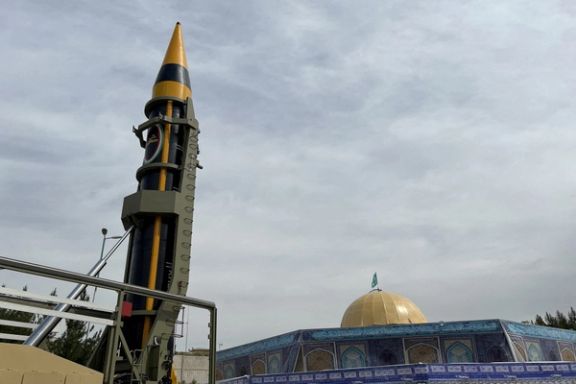
Miller warned that "Iran’s development and proliferation of ballistic missiles poses a serious threat to regional and international security and remains a significant nonproliferation challenge."
Western officials say that although the launches go against 2231, they are not a violation of the core nuclear agreement between Iran, Britain, China, France, Germany, Russia and the United States.
Since the US has withdrawn from the deal, it reneged its right to dictate any course of action and European countries have only months to do anything because UN Security Council restrictions on missiles and related technologies last only until October 2023, after which time Iran is free to pursue its ballistic missile activity.
The US state department spokesperson, however, told Iran International that Washington "continues to use a variety of nonproliferation tools, including sanctions, to counter the further advancement of Iran’s ballistic missile program and its ability to proliferate missiles and related technology to others."
The United States, France, and the United Kingdom are also arguing that Russia and Iran are violating UN Security Council Resolution 2231 by Tehran sending military drones to Moscow. While US spokesman Vedant Patel said in December that he was “not going to get ahead of the UN internal deliberations,” there has been chatter for months that the US wants to restore UN sanctions against Iran under a ‘snapback’ procedure in the JCPOA.
The JCPOA lifted international sanctions against Iran in return for strict limits on the Iranian nuclear program. Under the terms of the JCPOA, the sanctions can ‘snapback’ if Iran violates the agreement.
"Iran's activities pose serious and increased non-proliferation risks without any credible civilian justification," the French spokeswoman said."We expect Iran to respect its international obligations ... and carry out concrete and tangible progress before the Board of Governors meeting," Legendre added.
Iran began breaching JCPOA limits such as enriching uranium to 60 percent rather than the permitted 3.67 percent, and by using more advanced centrifuges, in 2019, the year after former President Donald Trump withdrew the US from the 2015 agreement and imposed ‘maximum pressure’ sanctions.
Legendre's reference to the escalation of Iran's nuclear program comes just 10 days before the International Atomic Energy Agency's 35-nation Board of Governors meets in Vienna.
Ahead of the last board meeting in March, the IAEA and Iran said they had agreed to make progress on various issues, including a long-stalled IAEA inquiry into uranium particles found at three undeclared sites in Iran. They also agreed to re-install all extra monitoring equipment, such as surveillance cameras, at nuclear sites that was put in place under the JCPOA, but then removed last year as the deal unraveled following the US withdrawal in 2018.
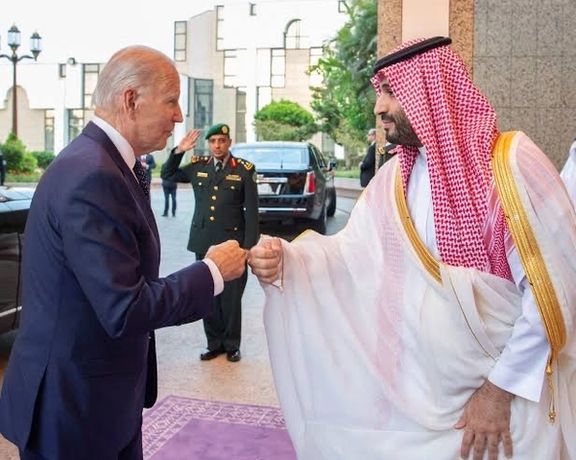
An Israeli daily claims a new arms deal with the US and having a uranium enrichment program are among Saudi demands to normalize ties with Israel.
Yedioth Ahronoth reported Thursday that such a deal would give Saudi Arabia the most advanced arms in the American weapons arsenal.
Meanwhile, The Times of Israel reported Tuesdaythe Saudis are also reportedly demanding that the White House unfreeze some Trump-era weapons deals that were frozen when US President Joe Biden took office, and are also seeking a defense treaty with the US similar to NATO as well as its stamp of approval for a civilian nuclear program.
Israel would receive full US support for its actions against Iran's nuclear program in exchange for a full normalization deal, the report claimed.
According to Israel’s Channel 12, US Secretary of State Antony Blinken and National Security Adviser Jake Sullivan are involved in the negotiations with Mossad chief David Barnea and "very senior officials" close to bin Salman.
National Security Adviser Tzachi Hanegbi on Tuesday denied that Netanyahu and bin Salman have been in direct contact in recent months, but said a normalization deal is possible.
“There is in Saudi Arabia a leader that the world has never seen before, a man who took his country 180 degrees in a different direction, a bold and revolutionary leader,” Hanegbi said. “If he thinks that it is possible to reach normalization with Israel, it will happen. I believe there is a chance this will happen.”
Some observers viewed Saudi Arabia's decision to re-establish ties with Iran in March as a setback to normalization between the kingdom and Israel.
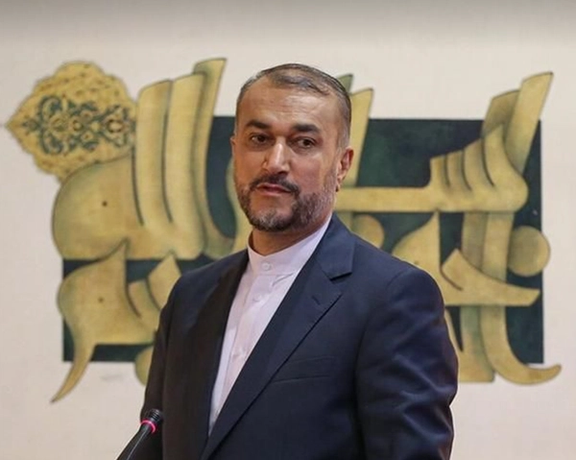
As tensions over a water dispute simmer, Iran’s foreign minister says Tehran does not recognize the Taliban, calling for the formation of an inclusive government in Afghanistan.
Hossein Amir-Abdollahian, part of a government deemed one of the harshest dictatorships in the world, stated that the Taliban is only part of the reality in Afghanistan not all of it.
In spite of Iran's oppression of women which has led to months of uprisings since September, when Mahsa Amini was killed in morality police custody for the wrong wearing of her hijab, the minister said: “We are unhappy with the ban on Afghan women and girls to study because this is against the teachings of the Prophet of Islam."
Iran had good relations with the Taliban before the tensions over the Islamic Republic’s water share from the Hirmand river.
Due to Taliban damming to halt the flow of water from Afghanistan hundreds of thousands of civilians' lives have been badly affected in the southeastern province of Sistan and Baluchestan.
While Afghanistan says it needs dams to store water for agriculture or to produce electricity, which it imports from neighboring countries including Iran, many environmentalists are critical of large-scale water engineering projects.
“We have had negotiations with the Afghan authorities, and we believe that according to the 1351 treaty, the issue must be resolved through legal channels,” said Amir-Abdollahian.
Afghanistan’s embassy in Tehran was “formally” handed over to the Taliban after the fall of President Ashraf Ghani in 2021.
Iran was the third country after Pakistan and Russia that handed the Afghan embassy to the Taliban.
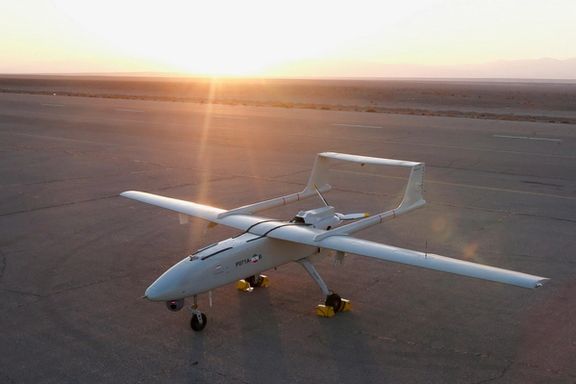
Israel shot down a drone that had crossed over from Lebanon on Thursday, its military said in a statement.
"A short while ago, IDF (Israel Defense Forces) soldiers identified and downed a drone crossing from Lebanese territory into Israeli territory towards the town of Zar'it," the military said.
It did not immediately identify who had sent the drone from Lebanon and released a photo of a UAV lying in a thicket of thorns. "The IDF will continue to prevent any attempt to violate Israeli sovereignty," the military said.
Iran-backed Hezbollah controls a wide strip of land along Israel's borders, with fighters, weapons and military installations covering southern Lebanon to Israel's northern border. Hezbollah is financed and armed by the Islamic Republic of Iran.
Last month, Israel said Lebanese armed group Hezbollah was behind a rare roadside bomb attack that wounded a motorist in northern Israel in March, and in the past has said it shot down the group's drones.
In April, rockets were fired from Lebanon into Israel during Palestinian Israeli clashes. Lebanon claimed that Palestinians on its territory had fired the rockets, and not the Hezbollah, creating a convenient ambiguity to relieve Israel of the pressure to retaliate against Hezbollah.
Iran has been encouraging all its proxy forces in the region to intensify attacks against Israel this year.
Iran-backed Hezbollah and Israel fought a month-long war in 2006 and have traded fire on several occasions since, but have avoided a large-scale confrontation.